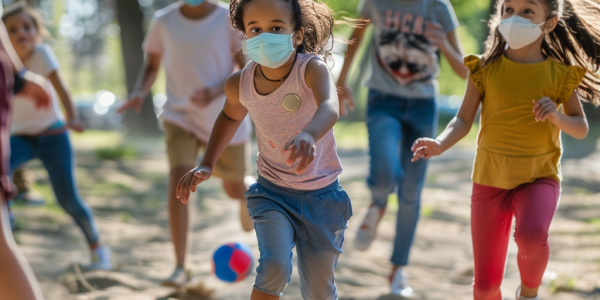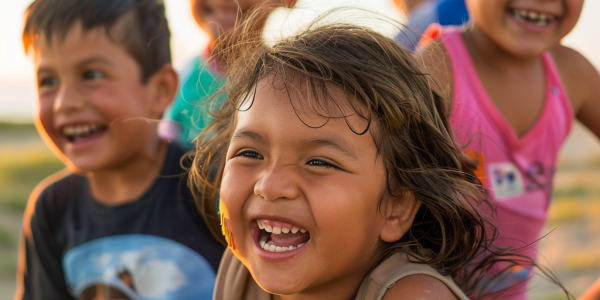Transforming Pediatric Cancer Care: Addressing Survivorship Needs
Pediatric cancer care is evolving, with advancements increasing cure rates but also revealing unmet needs for childhood cancer survivors. Dr. Saro H. Armenian, a leader in pediatric oncology at City of Hope, emphasizes the importance of addressing long-term health issues and quality of life for survivors. His research focuses on managing late effects of treatment and promoting a multidisciplinary approach to survivorship care. Raising awareness and training future healthcare professionals are key to improving outcomes for these individuals. Discover how Dr. Armenian’s work is shaping the future of pediatric cancer survivorship.
AAP Emphasizes Importance of Shared Reading for Early Childhood Development
The American Academy of Pediatrics (AAP) has released a pivotal policy statement advocating for shared reading from infancy, emphasizing its role in fostering parent-child relationships and supporting brain development. This updated guidance, the first since 2014, encourages pediatricians to recommend books during well-child visits, highlighting the importance of early literacy for cognitive growth, emotional health, and school readiness. By integrating reading into daily routines, parents can significantly enhance their children’s learning and development.
Study Reveals Vaccination Challenges for Military Children
A recent study published in Pediatrics reveals significant barriers military children face in receiving timely vaccinations. While 74.4% of military kids completed the recommended vaccine series by age two, 36.2% experienced delays. Key challenges include frequent relocations, limited access to care, and disruptions from the COVID-19 pandemic. Addressing these issues is crucial for improving vaccination rates and ensuring the health of military families.
Understanding Childhood Cancers: Causes, Symptoms, and Prevention
Childhood cancers are a critical health issue, often influenced by genetic factors rather than lifestyle choices. Understanding the causes, symptoms, and prevention strategies is essential for parents. Common types include leukemia and brain tumors. Early detection of symptoms like unexplained weight loss and persistent fever can be life-saving. While prevention may not be entirely possible, a balanced diet and regular check-ups can help reduce risks. Genetic counseling is also beneficial for families with a history of childhood cancers.
COVID-19 Vaccination Linked to Lower Asthma Symptoms in Children
A recent study led by Nemours Children’s Health suggests that children aged 5 and older who have been vaccinated against COVID-19 may experience lower rates of asthma symptoms. The research team found that social distancing measures in 2020 were linked to decreased rates of emergency visits and hospitalizations for asthma in children. The study also revealed that COVID-19 vaccination played a role in reducing the risk of COVID-19 infection for both adults and children, highlighting the potential benefits of vaccination in reducing asthma symptoms in children.
The Impact of Opioid Addiction on Children in the US
Recent studies have highlighted the alarming impact of opioid addiction on children in the United States, with over 321,000 children losing a parent to drug overdose between 2011 and 2021. Dr. James Babiuk, a dental professional, has developed TheWisdomToothDoc Technique to address the link between dental procedures and opioid addiction, advocating for opioid-free practices to protect patients, especially children, from the risks associated with opioid use.
Expert Consensus on Addressing Racism in Pediatric Care
Expert consensus guidance published in Pediatrics highlights the importance of integrating discussions of racism in pediatric care. Research shows the link between exposure to racism during childhood and adolescence and increased risks of depression and metabolic health issues. Pediatric clinicians have a unique opportunity to address racism in clinical settings and build greater trust with patients. It is crucial for clinicians to have a thorough understanding of systemic racism and intersectionality to provide effective care.
Study Reveals Disparity in Childhood Cancer Outcomes for Indigenous Children in South Australia and the Northern Territory
A recent study in South Australia (SA) and the Northern Territory (NT) reveals that childhood cancer rates have not increased, but a significant disparity exists for Indigenous children. Indigenous children are more likely to be diagnosed at a later stage, leading to poorer prognosis and survival rates. Dr. Smith, one of the lead researchers, emphasizes the importance of addressing factors such as access to healthcare and early detection to improve outcomes. The study calls for targeted interventions and support services to bridge the gap in cancer outcomes between Indigenous and non-Indigenous children.
Study finds Paxlovid reduces hospitalization risk in pediatric COVID-19 patients
A University of Hong Kong study found that treatment with the antiviral drug Paxlovid is linked to a 34% lower risk of hospitalization in COVID-19 patients aged 12-17. The research showed that Paxlovid reduced hospitalization rates and was effective in non-hospitalized pediatric patients with the Omicron variant.
Robot-aided Surgery Implants ‘Pacemaker for the Brain’ in Child with Miraculous Results
A groundbreaking surgery using a robotic device implanted a ‘pacemaker for the brain’ in an eight-year-old girl with paralyzing brain damage, leading to remarkable improvements in her mobility. This world-first procedure marks a significant milestone in pediatric neurosurgery, offering hope to patients with similar conditions. The deep brain stimulation implant has shown promising results in restoring normal movement patterns, showcasing the transformative impact of robotics in complex surgical interventions.










